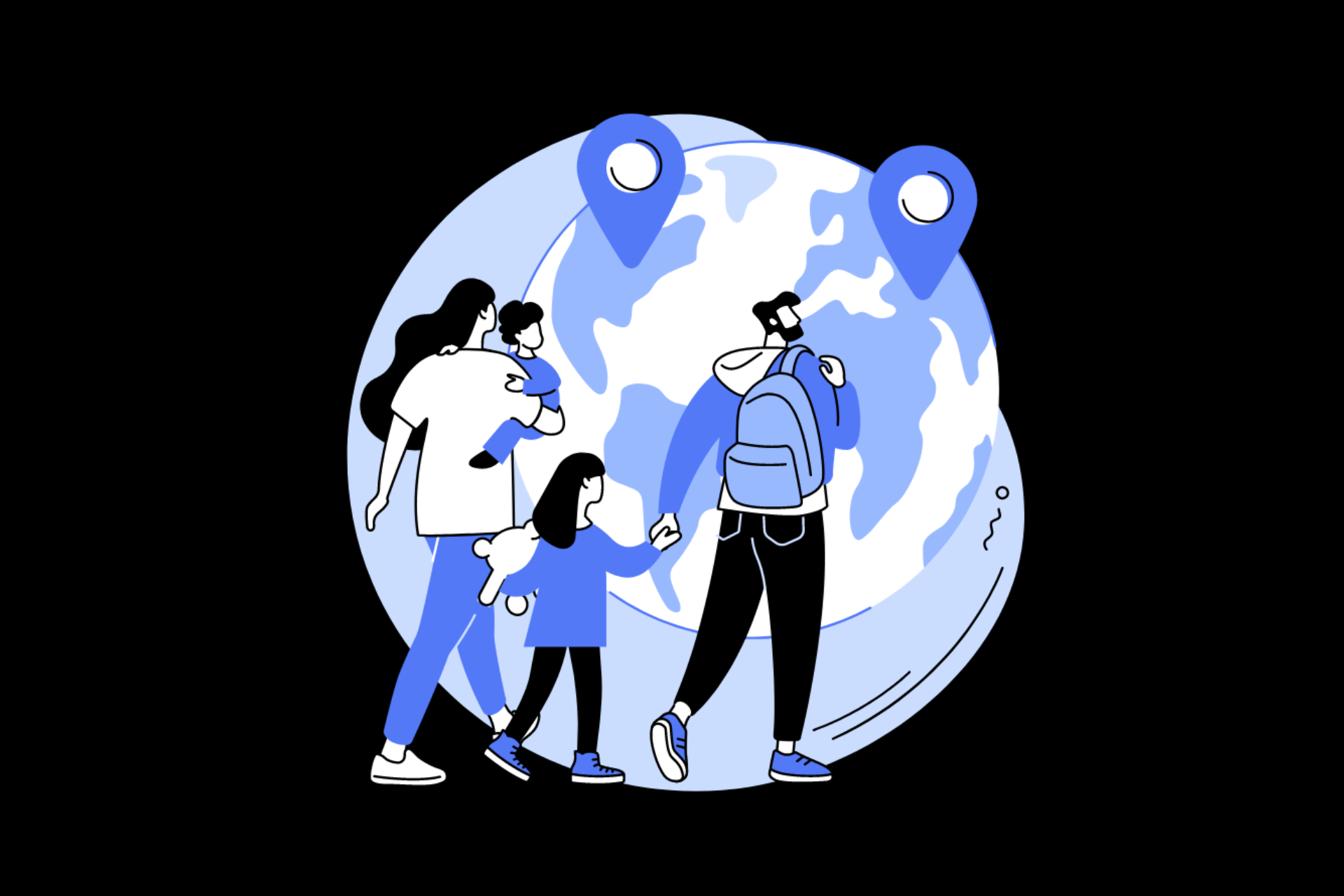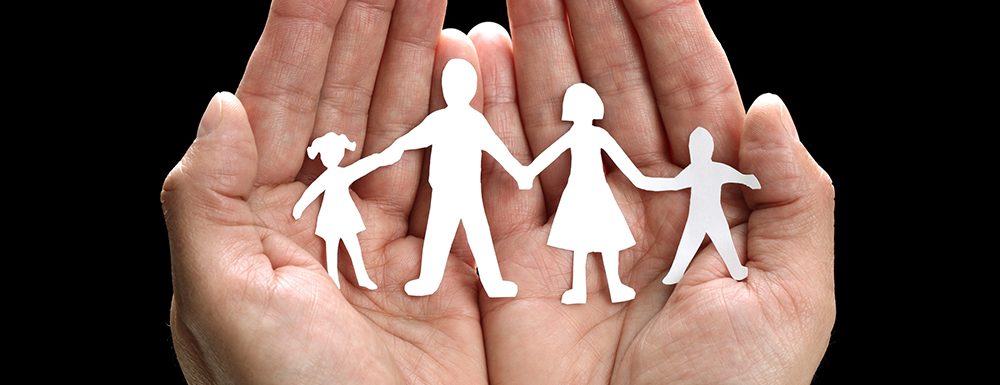
To mark World Refugee Day 2022, we sat down with Alla – a Ukrainian refugee who fled following the Russian invasion. Keep reading to find out more about Alla’s story and what she has been doing since she arrived in the UK.
G: Maybe you could tell us a bit about your life in Ukraine before the invasion?
A: I lived before in Kyiv but I’m from Poltava. And I worked in IT field as a business development manager. I also I had a small travel business and taught languages to foreigners.
G: And when the invasion happened, how did you manage to come to the UK?
A: I was in UK three months, but when I come back to home, after three days, it all started. I was unsure at first what I should do, but soon I realised the situation was not going to change. I then made the decision I post on my Instagram, saying I have a car and they want to drive abroad and asking if someone wanted to join me. I knew it was better to drive than get the train because I spoke to my cousin who was trying to get the train and the situation sounded so terrible. He said he had been waiting at the station for six or seven hours and when the train came it had been planted with a bomb. After I saw the panic he was in, I realised it would be safer to drive and I was also afraid the same thing would happen to me.
G: And then where did you drive to?
A: I drove from Kyiv to Poltava because I have a flat there. Kyiv is in the middle of Ukraine and for some reason I thought if I come to Poltava la I will be safe and it will be okay. But when I arrived I saw how everyone was panicking. It reminded me of the start of the pandemic – everyone was so worried, rushing to the supermarket, buying loads of food and trying to get money from all the bank machines. It was the same as that but even worse. After that I started to notice the buildings around me had no lights and there were no cars driving around. It seemed suddenly like everyone had left…there were no people left and it was really scary to be honest. I could also here fighting in the distance all the time and it was damaging me psychologically. As I live alone and when you’re alone it is hard to realise what you should do for the best. It drove me crazy. It felt like I was just waiting for the worst.
G: That sounds really tough. How did you get to the UK after that?
A: I drove with my friend from Poltava to Kremenchuk, where my family live, and after we went from Kremenchuk to Moldova, and from Moldova to Romania. We then stayed in Romania for a couple of days and then my friend went to Bulgaria because she found work there. I didn’t know what to do because I was alone in Romania but luckily the consulting company I worked for was British and the Director told me to come to London and they can help me is accommodation. So, I bought a ticket and when I fly here to London like they gave me a phone number for a lawyer’s company, I visited them and they invited me to stay in a hotel where other refugees were staying.
G: Thank you for sharing your story Alla. We’ve seen a lot of stories about human trafficking and traffickers preying on women and children who have fled. I wanted to ask how you think the safety of people migrating can be better prioritized and how did you manage to keep safe yourself?
A: When all this stuff is happening, it’s hard to know what you should do. I was ready for the worst to be honest. I think the best thing I did in my situation was not to bring too many clohtes, I only had a small bag and tried to wear dark things so not to draw attention to myself. I also tried not to talk to other people, especially strangers who were trying to ask me questions. If someone tried to talk to me I pretended I didn’t understand. Also, I was in shock – I had just driven all that way without stopping. I didn’t even stop to eat or take a break and I didn’t sleep for three nights but I managed to find the energy. It was really a lot for me, it was so stressful.
G: Gosh, it must be the adrenaline of the situation keeping you going and driving you on. I wanted to ask Alla, how have you found arriving in England as a refugee?
A: You know, when my director invited me to UK I already had a visitor visa because I studied here but I realised that if I want to get some help in UK, I have to apply for refugee status. But for me to be honest this status was pretty scary because it means that you can’t go back to home (Ukraine) for at least five years. I heard that hopefully the rules will change for Ukrainian people, so I applied because I wanted to get help and get somewhere to stay because in the UK accommodation is so expensive.
G: Oh definitely, the prices in London are really high. Okay, so now you found somewhere to live. What else are you up to?
A: I started to living in the hotel and I realised that until I get my document I can I cannot work. I met some other refugees and everyone was so different and everyone was much older than me. For a while I felt like I did something wrong by leaving Ukraine and going abroad, some my friends were angry with me because they thought I betrayed our country. I think some of them wanted to leave but they couldn’t or they were afraid and didn’t speak the language. But when I started talking to these other refugees in the UK and heard their stories, such as leaving family abroad and having to pick between their children I realised how lucky I was. Also many of them couldn’t speak English and had never been abroad, so it was difficult for them to go to the GP and organise things. I started to help them with things like ordering food and I organised some English classes in the hotel where we were staying. The people who worked in the hotel were bringing us books to help me teach. It was really amazing. Also it was good for me because, I was motivated, I felt like I was doing something for them. I needed them and they needed me too. It made me feel really good.
G: Oh amazing! So my next question actually links to that nicely. I wanted to ask about your social media and specifically your Instagram account. I’ve seen you’re very active on there and you’ve got a growing following. Do you think those experiences in the hotel with you’re the other refugees is what spurred you want to use your Instagram account to help people in a similar situation?
A: I get so many people messaging me all the time, asking me questions and I respond to them or make an post to raise awareness and answer frequently asked questions. Since I’ve started working though I’m pretty busy and I have so much to do so my posts have slowed down, but if people message me I always reply with a message or voice note with information which can help them.
G: That’s great. And what kind of information is it that they’re usually after?
A: Information like, for example, if someone just arrived and wants to use the Homes for Ukraine programme. A girl messaged me recently who had arrived in the UK and she was suffering badly with her mental health after what she had been through. She wrote to me asking what she can do so I helped her plan her next steps. Also the Evening Standard published an article about me and since that I have had a lot of work offers which, now I have work, I can pass on to other refugees. I think in this situation is really important to help each other.
G: Definitely. That’s a really important point to make. Leading on from that, do you think we could be doing better to support refugees and Ukrainian people right now in the UK?
A: I think the best thing to do now is to provide psychological help to the refugees. Support and talking . are really important because when you feel bad mentally it’s not easy to organise your life. Also giving English lessons is really important because living in the UK without speaking the language is really difficult.
G: Yeah I can imagine that they’re two really important aspects where people would need additional support. So we can finish on a lighter note, shall we talk about your hopes and plans for the future?
A: It’s interesting. In my opinion, the war in Ukraine will be fought for a long time. I think I’m lucky though because since I’ve come abroad by life has completely changed, but in a good way. I’m in touch now with so many amazing people and I like helping people like people have helped me. I think I can be a good person to be friends with them, give them advice, information and help. I want show Ukrainian people and they also can be successful abroad also. So many people are disheartened when they arrive because they cannot speak to the language but it’s important to motivate them to improve their language, to go to study and to do something with their life to improve it. I want to show my example – it’s real, it’s real to be able to do this.
G: Definitely. That’s really nice positive note to end on as well, so thank you. It’s been really interesting to talk to you, and hearing about your experiences and everything you’ve achieved since arriving in the UK. Good luck with everything!
—
Follow Alla on social media to see more of her journey in the UK and to see some of the amazing work she does to raise awareness and support other refugees:
Instagram: @aila__karimova
Twitter: @misskarimovalla
By Gabriella Jiménez


